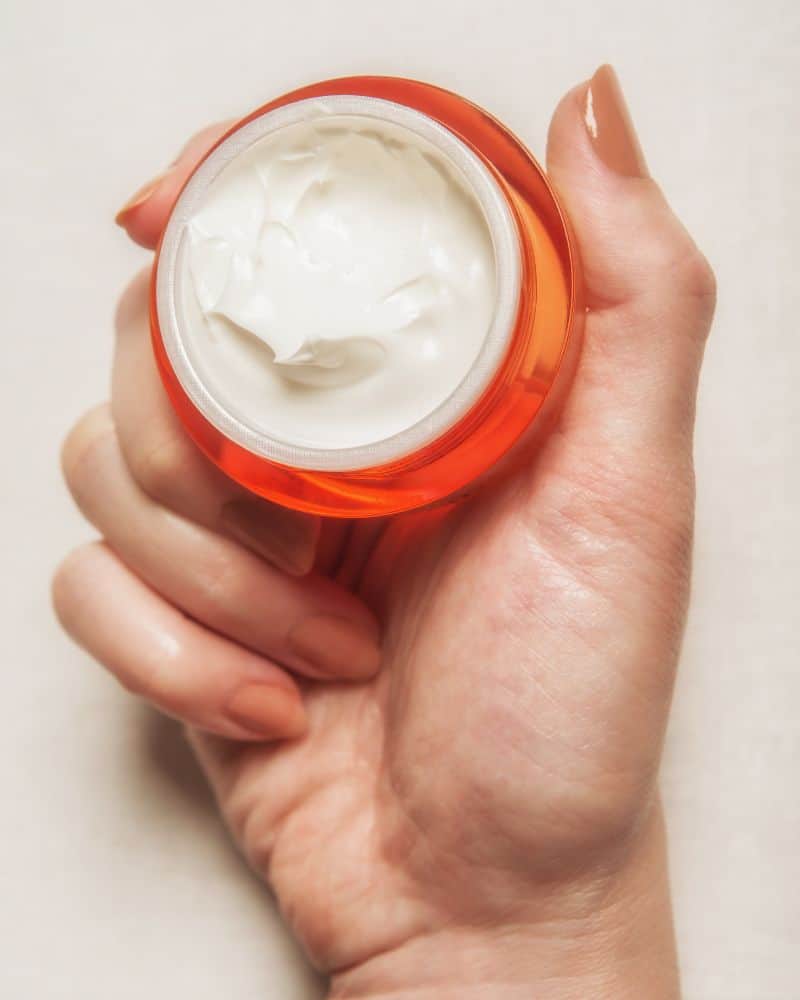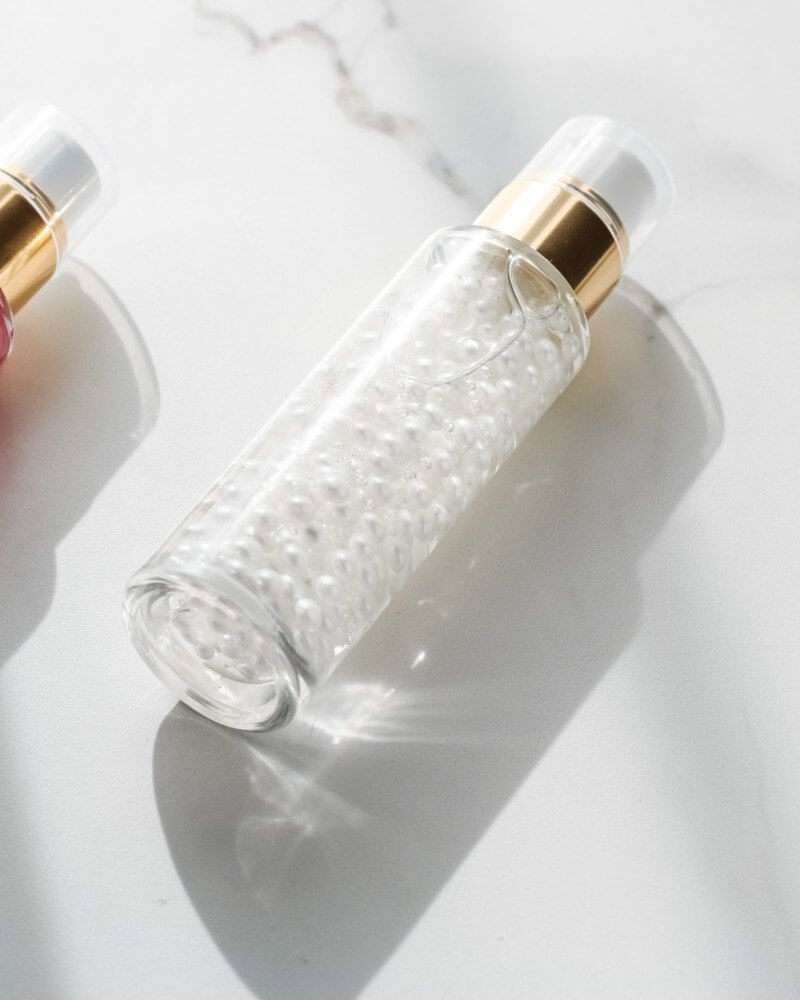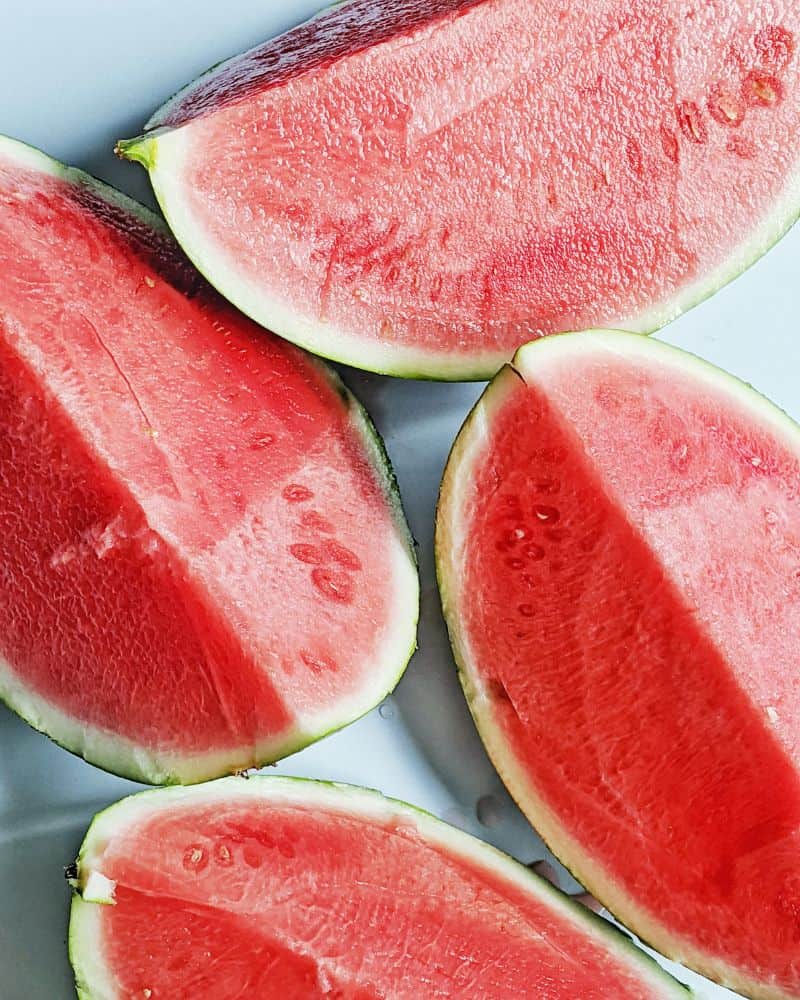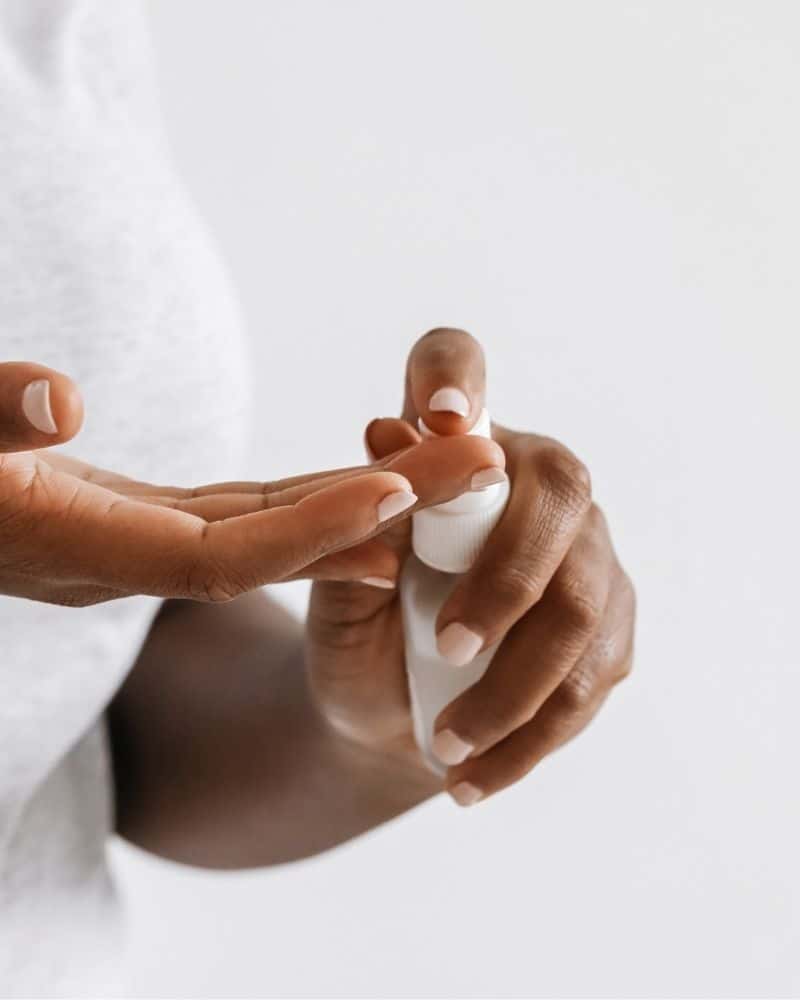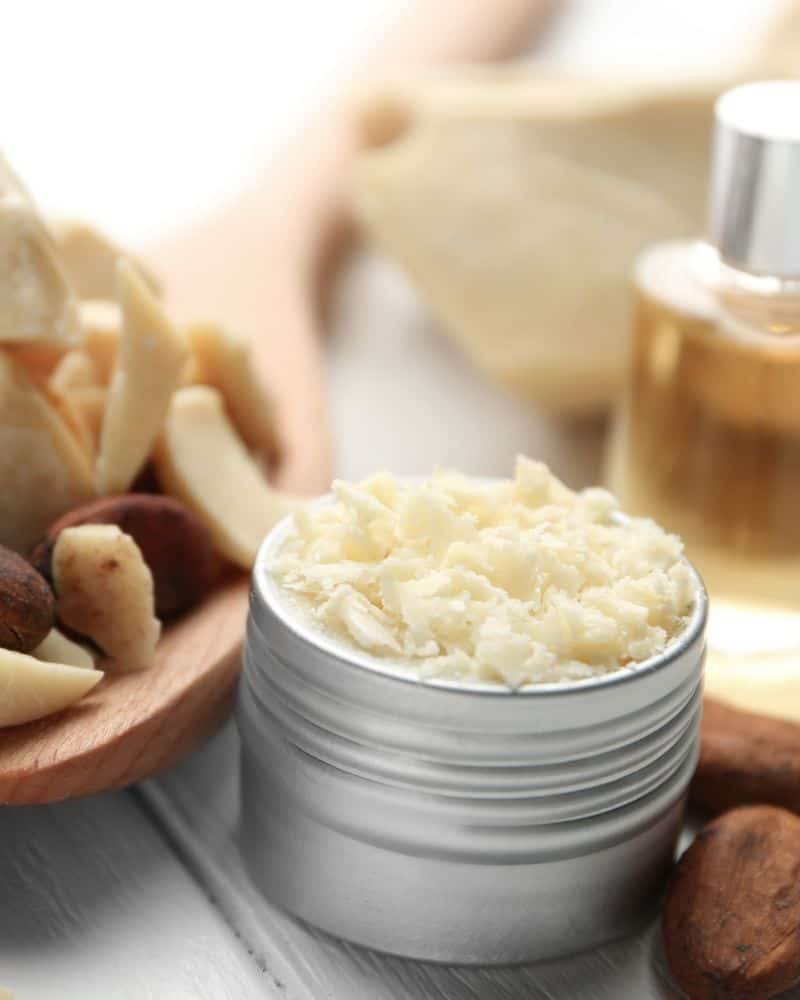Is Olive Oil Comedogenic? You May Be Surprised!
This post may contain affiliate links.
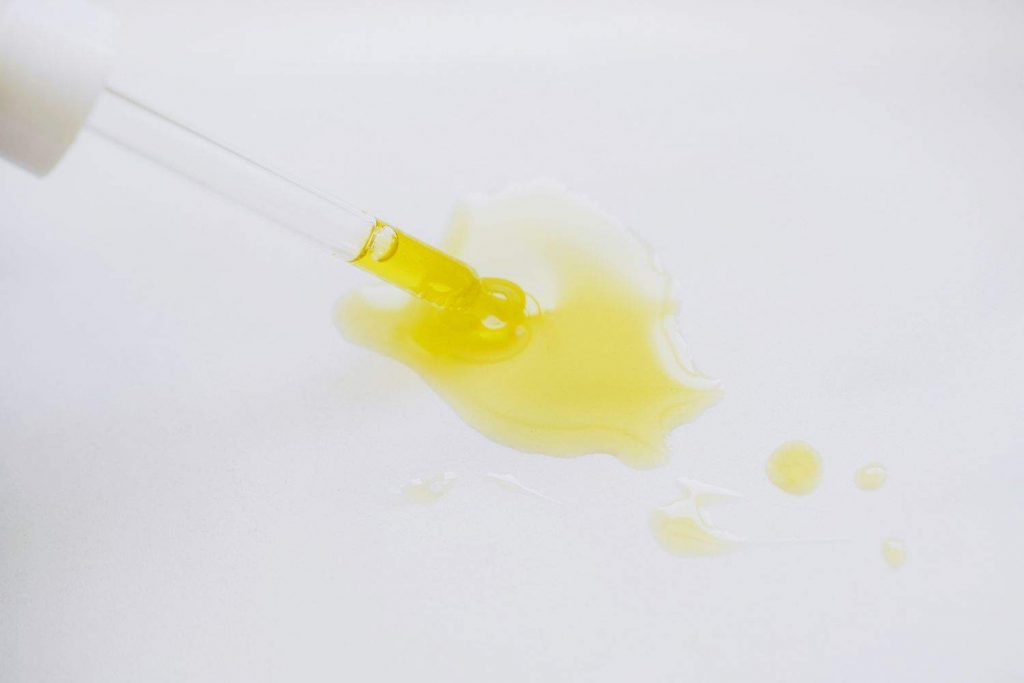
Is Olive Oil Comedogenic?
Facial oils have become all the rage in recent years, partly in thanks to celebs like J. Lo who claim oils like olive oil are her secret to ageless skin. For most people, putting oils on your face may seem like a bad idea, facial oils can be incredibly beneficial for oily and acne-prone skin types. But not all oils are created equal. In fact, there are some oils that are pore clogging and it’s best to stay away from those. So is olive oil comedogenic? Let’s find out!
What Is Olive Oil
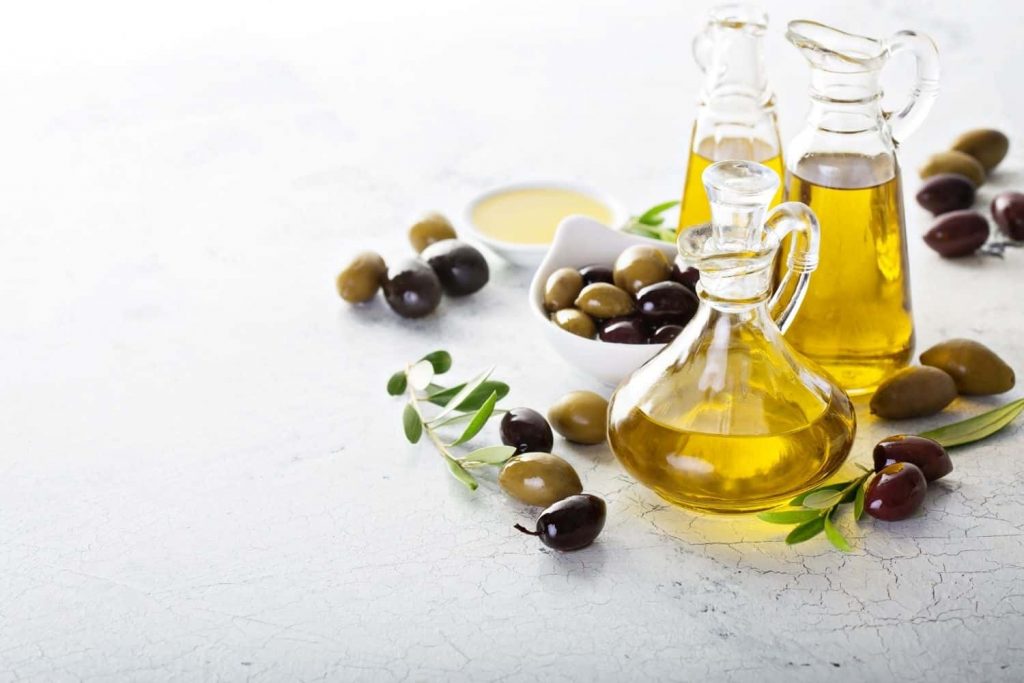
While most commonly used for cooking, olive oil or EVOO (extra virgin olive oil) can also be used on the skin, along with other uses. It comes from the olives, which are the fruits of olive trees.
The majority of the olive oil produced is produced in the Mediterranean, where their diets consist of lots of olive oil.
There are many types of olive oil and some of the most common are extra virgin olive oil, hydrogenated olive oil, refined and pure olive oil.
You may also know olive oil as Olea Europaea Oil or Olea Europaea Fruit Oil, as their scienfitic names that are usually written on ingredients lists.
Olive Oil Benefits For The Skin
Not only is olive oil a great, healthy fat to add into your diet, olive oil can also be used in many different ways in your skincare routine. From oil cleansing to mixing a few drops in your moisturizer, there are endless ways you can add facial oils into your skincare routine and reap all the good benefits.
There are so many benefits to incorporating olive oil into your routine. It will help reduce inflammation and redness, heal wounds, prevent stretch marks and may even have anti-aging properties! Adding EVOO also extends the life of your moisturizer by locking in that moisture to keep it from escaping. Here are some of the benefits of olive oil for the skin:
- Moisturizes: olive oil is an incredible moisturizer for the skin. It helps lock in moisture and prevent transepidermal water loss while softening and smoothing the skin. Olive oil works best when mixed in a moisturizer or applied on top of a moisturizer to keep everything locked in
- Fights bacteria: not only can olive oil help treat stomach ulcers that are cause by h. pylori, it can also help to kill bacteria on the skin. Meaning it can kill acne causing bacteria and other harmful bacteria that can cause skin issues
- Vitamin Rich: olive oil is rich in vitamins like vitamin a and vitamin e, which means it’s nourishing and can replenish skin when its low on needing vitamins and nutrients. That means healthier skin for you!
- Antioxidant Rich: olive oil is packed with antioxidants like vitamin a and vitamin e to help defend the skin against environmental damage while promoting damage repair. Olive oil can be used day at night to protect and repair against damage from UV rays, pollution, etc.
- Anti-inflammatory: it’s also been found that olive oil has antioxidant properties which can help with a variety of skin issues from acne to eczema. This also means it’s a great facial oil for sensitive skin type because it can help calm irritation and soothe inflammation quickly
- Anti-aging: because of its high concentration of antioxidants and vitamins, olive oil is great for anti-aging. It can help prevent skin damage from pollution and UV rays, thus preventing fine lines and wrinkles. Olive oil can also help to smooth fine lines and wrinkles thanks to its moisturizing effects
- Stimulates Collagen: not only does olive oil help fine lines and wrinkles, it’s also been show to help with collagen production. Meaning more youthful looking skin!
- Wound Healing: it’s also been shown that olive oil helps with wound healing and tissue regeneration. This means it’s great for things like acne, hyperpigmentation and even minor cuts or scrapes.
Alright so if you’re wondering does olive oil clog your pores then keep on reading for the answer.
Related Post: Benefits Of Watermelon Seed Oil
Comedogenic Vs Non-Comedogenic: What Do They Mean?
Before we answer the question is olive fruit oil comedogenic, we first need a little background on non-comedogenic vs comedogenic.
You’ve probably seen the words “non-comedogenic” on skincare labels and wondered what the heck it actually means. It’s actually pretty simple.
Comedogenicity just refers to how likely the product is to clog pores or cause breakouts. Acne is caused when hair follicles become clogged with oil, bacteria ad dead skin cells, making it more difficult for the skin to breathe. If you have oily or acne-prone skin, you might want to avoid anything with a high comedogenicity rating since this can lead to additional breakouts.
Comedogenic means that it’s likely the product or ingredient will clog pores, especially if you have oily or acne-prone skin. Non-comedogenic, on the other hand, means it’s not likely the product or ingredient will clog pores.
The Comedogenicity Scale
The comedogencity scale is what we refer to when we want to know if a product or ingredient is comedogenic or non-comedogenic (or somewhere in between).
The comedogenic scale ranges from 0-5.
0- Does not clog pores
1- Low chance of clogging pores
2- Moderately low chance of clogging pores
3- Moderate chance of clogging pores
4- Fairly high chance of clogging pores
5- High chance of clogging pores
So in general, anything from 0-2 is likely fine to use and shouldn’t cause breakouts or clogged pores in most people. Anything 3-5 should be used with caution, especially if you have oily or acne-prone skin.
Is Olive Oil Comedogenic Or Non-Comedogenic?
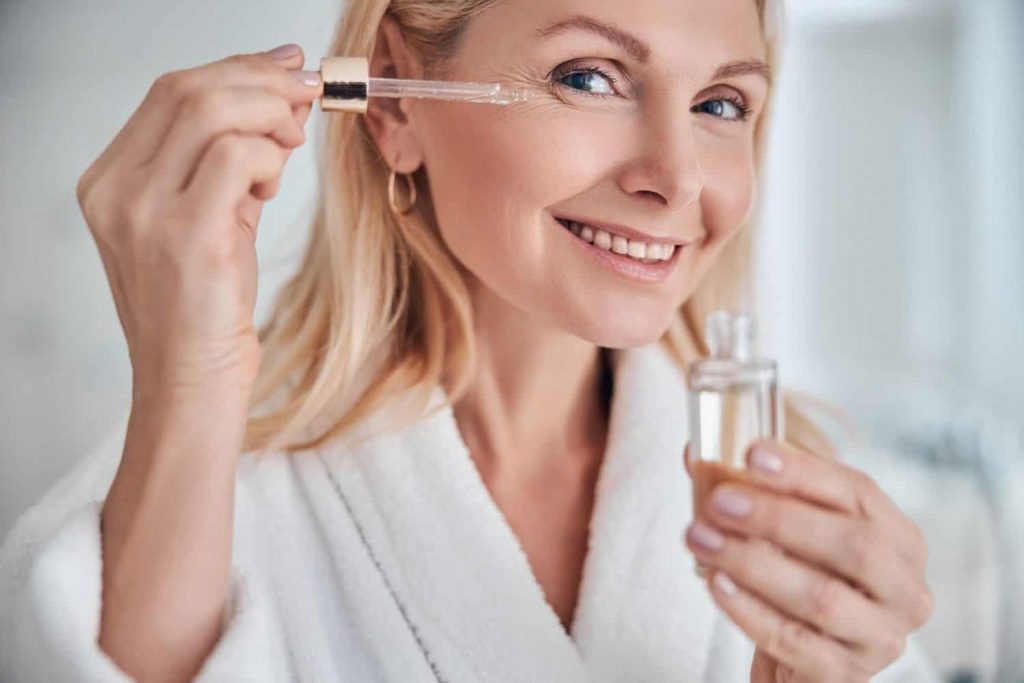
Now that we have all that important info out of the way, we can finally answer the question – does olive oil clog pores?
While olive oil is found in many skincare products, from cleansers to moisturizers, it’s not always the best facial oil to use. Olive oil is considered mildly comedogenic, so yes olive oil is comedogenic and can lead to clogged pores.
Olive oil has been found to be mildly comedogenic, so if you are someone whose skin typically breaks out or if you have oily or acne-prone skin, you should avoid using olive oil as a face product or facial oil for your skin care routine.
Is Extra Virgin Olive Oil Comedogenic?
Extra Virgin Olive Oil is often hailed as a healthy cooking alternative to other oils. It’s praised for its heart-healthy fats and antioxidant content. But can extra virgin olive oil clog pores?
Yes, extra virgin olive oil is comedogenic. No matter what type of olive oil it is (organic, cold pressed, pure or refined) it still has the same comedogenic rating and the same possibility of clogging pores and leading to acne or breakouts.
What Is The Comedogenicity Rating For Olive Oil?
So how comedogenic is olive oil? Olive oil is rated a 2 on the comedogencity scale, meaning there’s only a moderate chance of it clogging pores and leading to breakouts. Compared to something like coconut oil, which has a rating of 4, olive oil is generally pretty safe.
However, those with oily and acne prone skin will say a moderate chance is too much of a chance to risk pore clogs and breakouts. Especially since there are many other non-comedogenic facial oils to use.
Olive oil does have some incredible benefits for the skin, so it can be a great oil for certain people (those with drier skin and aren’t prone to acne). Since olive oil is a thicker oil, it’s great at keeping skin moisturized and keeping hydration locked in (along with a ton of other benefits). So just because olive oil is slightly comedogenic, doesn’t mean you should completely write it off!
But, if you have acne-prone skin, I’d stay away and stick with less comedogenic oils. And if you have dry skin, I say go for it!
Related post: Is Argan Oil Comedogenic?
What Makes Olive Oil Comedogenic?
There are some properties of olive oil that can contribute to clogged pores. The main one being its high concentration of oleic acid. Oleic acid is a fatty acid that is found in all types of plant oils. Its concentration is what matters here.
Olive oil has a pretty high concentration of oleic acid and can range anywhere from 55–83%. So why is this important? Well, oleic acid has been found to contribute to acne and clogged pores in the skin.
So, since olive oil has a higher concentration of oleic acid, that means it’s slightly more likely to clog pores than say, Argan oil, which has a low concentration of oleic acid.
Other oils with a comedogenicity rating include sweet almond oil and sesame seed oil which are safely used by many people without issues.
Will Olive Oil Break Me Out?
If you’re wondering does olive oil block your pores and lead to breakouts, well it all depends.
While it’s no guarantee that you’ll experience breakouts and clogged pores when using olive oil, it’s certainly likely. However, olive oil has been used on the skin for centuries, and many people swear by it.
Yes, olive oil may possibly break you out. But it also might not! It does have a small chance of breakouts, but so do a lot of other ingredients found in your skincare products.
Everyone’s skin reacts differently to products and ingredients, so there is no definitive answer to whether or not olive oil will cause acne.
If you’re worried you can always patch test olive oil or a product containing olive oil. Or simply avoid it and use non-comedogenic oil instead.
Does Olive Oil Cause Acne?
When you hear of using oils on your skin, many people wonder about breakouts and clogged pores. Olive oil is one that will definitley leave you wondering does olive oil clog pores because it’s thick, rich and heavy.
Olive oil is a natural moisturizer that has been used for centuries to soften and protect the skin. It is also a potent source of antioxidants, which can help to fight the signs of aging. However, some people believe that olive oil can cause acne.
While olive oil itself won’t cause acne, the issue is with its high concentration of oleic acid, which has been proven to cause acne and clogged pores.
While it is true that olive oil can clog pores and trap dirt and bacteria, it is not the only factor that contributes to acne. Other factors, such as hormones and lifestyle also play a role. In addition, olive oil is not the only oil that can cause acne.
Any oil, including those found in cosmetics and skincare products (even oils rated as non-comedogenic), can contribute to breakouts.
Related post: Will Jojoba Oil Clog Pores?
Is Olive Oil Comedogenic FAQ’s
Still have some questions about does olive oil clog pores? Check out some frequently asked questions about olive oil and clogged pores.
Is it OK to put olive oil on your face?
Although olive oil is perfectly safe to use on your face, it does have a risk of clogging pores. Since it has so many amazing benefits for the skin, many people want to use this nourishing oil on their face – and while it does make a great facial oil, keep in mind that there is a risk of it clogging your pores. But other than that, olive oil is safe, effective and beneficial for the skin.
Does olive oil clear pores?
Olive oil is frequently touted as a remedy for a variety of skin issues, including clogged pores. But does it really work or will olive oil clog pores? Olive oil is known to be an effective natural cleanser, and it can help to dissolve dirt and debris that can clog pores, especially when used as an oil cleanser. However, olive oil is also a comedogenic substance, meaning it can clog pores.
As a result, it’s important to use olive oil with caution, especially if you have acne-prone skin. If you do decide to use olive oil on your face, be sure to choose a light, non-greasy variety and apply it sparingly. You should also avoid using olive oil around the eyes, as it can cause irritation.
So, while olive oil does not have any exfoliating properties that can help clog pores, if it’s used as an oil cleanser, it can help to break down makeup, dirt and oils from the skin which can prevent clogged pores but it will not actually clear them or get rid of them.
Is olive oil good for pimples?
Believe it or not, olive oil can be great for pimples! It’s a natural anti-inflammatory so it can help reduce the redness and swelling of pimples. It also has antimicrobial properties which can help to kill the bacteria that cause pimples.
However, do keep in mind that there is a chance that olive oil will clog your pores. Since the olive oil comedogenic rating is a 2, it’s a small likelyhood that it will, but just be aware that there is a chance of olive oil clogging pores.
Can I use olive oil on my face every night?
Yes, olive oil can be used daily – in the morning or night. It can even be used 2x daily. Since it’s a thicker and richer oil, it’s best for those with drier skin types.
Is extra virgin olive oil a good face moisturizer?
Olive oil is a natural oil that has been used on the skin for centuries. Olive oil is known for its ability to hydrate and protect the skin, and it is also one of the most emollient oils. This means that it can help to lock in moisture, making it an ideal face moisturizer. It’s also rich in antioxidants, which can help to protect the skin from damage caused by free radicals. Olive oil is a safe and effective way to moisturize the skin, but since it can be comedogenic, it’s best for those with normal to dry skin.
Can I apply olive oil on my face daily?
Olive oil is generally considered safe for most skin types, though it may cause acne in some people because it is rated as comedogenic. However, olive oil is safe to use on your face daily as long as your skin tolerates it and you don’t experience any reaction, clogged pores or breakouts.
Where Does The Comedogenicity Scale Come From?
Originally, the comedogenicity scale came about by testing products on rabbit ears. The ingredient was applied, and if no breakouts or comedones appeared, then the ingredient was deemed non-comedogenic.
While testing has come a long way since then, we still use much of the data that was collected on rabbit ears. So how reliable is it? Well, rabbit skin is very different from human skin, so take it with a grain of salt.
However, it’s still a great guide to go by and I personally still use it, as I am pretty acne prone.
Alternative Non-Comedogenic Oils
Now if you really want to try a facial oil, but are too scared to try olive oil and are looking for an alternative, there are some great options. So which oils do not clog pores? These are some non-comedogenic oils that are safe for acne-prone and oily skin types:
- Argan Oil – comedogenicity rating 0
- Black Currant Seed Oil – comedogenicity rating 0-1
- Camellia Seed Oil – comedogenicity rating 1
- Grapeseed Oil – comedogenicity rating 1
- Hemp Seed Oil – comedogenicity rating 1
- Meadowfoam Seed Oil – comedogenicity rating 1
- Safflower Oil – comedogenicity rating 0
- Squalane Oil – comedogenicity rating 0
- Sunflower Seed Oil – comedogenicity rating 1
Is Olive Oil Comedogenic: Wrap Up
Olive oil can be a great facial oil for the skin because of its ability to nourish and moisturize the skin. But is olive oil non-comedogenic or can it clog pores? Olive oil can be comedogenic in some cases and can lead to clogged pores and breakouts because of its high concentration of oleic acid which is known to cause clogged pores and acne.
If you do experience comedones or acne from olive oil on your face, try using on your body instead. Many times our facial skin is more sensitive than our body skin. So, ingredients that cause breakouts on your face, may be perfectly fine to use on your body without issues.
